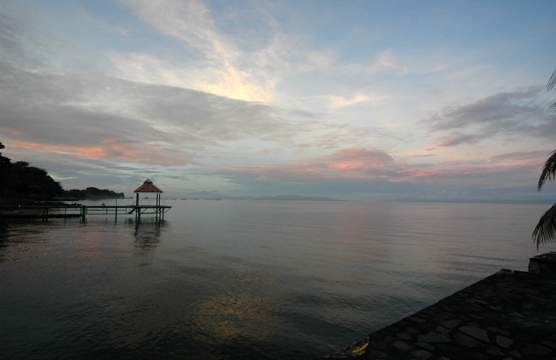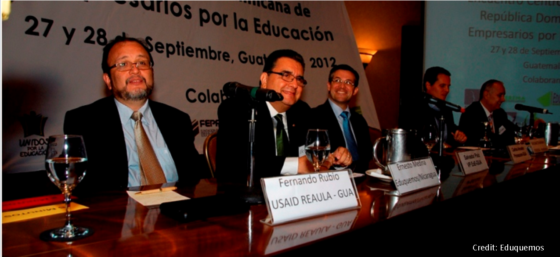This post is also available in:
Spanish
Nicaragua’s political changes in 2024 will depend on both the internal and external responses to the dictatorial radicalization, as well as to how the international community redefines its policy toward and relationship with the Ortega-Murillo regime. The economic situation shows moderate growth yet absent of a “boom” or distribution of wealth, which remains concentrated in the kleptocratic leadership. But the internal conflicts within the regime and international pressure will be factors that can define possible reforms or even ruptures in the country.
International pressure will affect Nicaragua (whether in accelerating or postponing a transition) and its outcome will be shaped by three major realities: the global environment, presidential elections in the United States, and the political dynamics of Latin America and the Caribbean.
The Complex Global Environment
The desire for a peaceful international order is consuming the minds of both the people and the world at a time when geopolitics are adopting a predominant role. The world agrees that cooperation is successful only in democracy, and without cooperation, there is no international stability.
However, global challenges are affecting all countries, and these are multifaceted. They include climate change, equitable economic and technological modernization, the peaceful resolution of disputes such as those of Israel-Gaza, Russia-Ukraine, Nagorno-Karabakh, China-Taiwan, Syria, North Korea, Sudan, Iran, South Africa, and military coups in Africa.
For the United States and Europe, as for other democracies and international organizations, the balance of power is not defined on the battlefield, but through negotiations and concessions in which compliance with any agreement is tied to pressures and incentives that end up producing mutual benefits. However, the threat posed by these coincides with a struggle towards a global geopolitical reordering, which may entail the use of force.
The struggle for a more just political order has become more of an uphill battle in such a way that democratic leaders are divided between either cohabiting with dictatorships with unequal economic models or making use of pressure tools to promote democratic institutions alongside solutions to conflicts without entering in violent confrontation.
After the pandemic, and with the departure of foreign forces from Afghanistan, the use of weapons and violence has returned, with countries and societies gravitating between isolationism and global integration. The issue that take precedence in 2024 is a reconsideration of how to give a proportionate response to restoring political stability — amid the uncertainty of 40 presidential elections, a more competitive and ‘smart’ economy, and countries facing the pressure of technological advancement as an engine of productivity.
Many governments will have to yield toward political reforms, while others will remain reluctant to loosen their privileges, as can be seen in the polarization in Honduras between Zelaya’s populist elites and traditional economic elites.
Nicaragua is one of the few countries that is choosing to maintain an authoritarian system in darkness and self-isolation. One perspective among international players is to ‘wait it out,’ that is, to wait for the dictatorship to self-destruct. There is a certainty among experts and decision-makers that the type of regime and the extremes to which it is going will be concluding in an internal revolt that may be precipitated by a short-term trigger.
The other perspective is to exert low-intensity but continued pressure to cause wear and tear more quickly. 2024 is a decisive year and the choice that the world makes about Nicaragua.
The Conundrum of the US Presidential Election
Of the forty elections in the world, the US presidential election has everyone’s hair stand on end. The race between Joe Biden and most likely Donald Trump is close, polarized, and uncertain.
Biden’s popularity has fallen, especially on migration and international issues. Overall, his credibility has declined in both his enforcement capacity and physical condition. The Republican opposition has done everything possible to block the president’s agenda and executive work, to the point of voting for his impeachment. Biden has remained just above a 40 percent approval rating.
Trump, on the other hand, faces four trials against him, ranging from tax fraud, interference in previous elections, and manipulation of secret documents. His popularity is not high, but it is stable, held like Biden at around 40 percent of the electorate.
Polls show a Biden-Trump tie in which the margin of error gives either side the win.
The key electoral theme of this campaign includes traditional issues such as solving the economy, lowering interest rates, gun control, as well as reorganizing fiscal policy and reducing spending.
However, the global situation has become a campaign issue, where only 34 percent of people believing Biden has done a good job. On the one hand, there is the immigration crisis to which only 26 percent of the public approves president’s Biden handling of it. Meanwhile, Trump talks about acting like dictator on day one, closing the border, and enacting drastic measures.
In regards to Ukraine, China, and Israel, public opinion has been unfavorable, with less than 40 percent approval of the president. Meanwhile, Trump is not preferred among the electorate when it comes to his attraction to Putin, his proclivity toward Netanyahu, his ambiguity about China, and his disdain for developing countries.
The electorate does not see his leadership as helpful in reducing international tensions.
In the face of electoral uncertainty, both candidates are challenged to reflect a realist foreign policy agenda, and one that is firmer than it has been in the last ten years. In 2024, Biden will have to show that his foreign policy will remain inflexible with Russia, but stronger against Israel — moving away from the Manichean perspective of being either pro-Israel or pro-Hamas.
His position on migration will focus to tighten immigration controls to stop the arrival of another three million people (and the possible entry of a million), eliminating humanitarian relief among other measures.
The Biden team is also rethinking the ‘wait it out’ perspective as it sees that this approach with Latin America and the Caribbean has not yielded good political returns but rather has aggravated things. For example, the reduction of sanctions did not improve the political environment in Venezuela, Nicaragua, Cuba, or the Northern Triangle.
Sanctions were actually headed in the right direction, affecting transgressors, not the countries or their economies.
On the contrary, the slowing of sanctions coincides with an increase in migration.
The fact is that realpolitk of migration shows that migration is fundamentally a foreign policy problem.
It is very likely that the Administration, this coming year, will assume a more proactive policy towards the region and will try to increase its alliances in the face of challenges related to geopolitical reordering so as not to lose its current position in the face of the growing Chinese and Russian presence in the region.
Nicaragua is a focus of attention for this Administration and many Republicans, so the Senate’s passage of Bill S1881 on Nicaragua will have to be implemented in compliance with the legislative mandate.
For this administration, Nicaragua is an electoral litmus test to demonstrate that a political approach to Nicaragua can mitigate migration, while managing to contain the dangerous radicalization that the dictatorship has taken.
Latin America and the Caribbean
This region is part of this geopolitical reordering both because extracontinental powers want to increase their footprint in the region and because there will be electoral political processes that can alter the democratic balance. The elections in Mexico, El Salvador, Panama, Mexico, the Dominican Republic, Uruguay, and Venezuela exhibit divisions and tensions between the electorate and the political parties.
Mexico will determine whether López Obrador’s legacy will continue or whether the country will return to its traditional foreign policy. El Salvador raises the possibility that Bukele’s victory could create a realignment toward the United States to consolidate his government’s agenda. The same is expected with Arévalo in Guatemala, which will produce greater rapprochement with the United States.
The outcome of the Venezuelan elections will show Maduro’s terms for his departure, but not whether there will be free and fair elections. Haiti and Cuba reflect complexities that will not be resolved in the short term, in the former, anarchy and criminality exceed the possibility for United Nations forces to drastically reduce violence and promote stability.
Meanwhile, in Cuba, economic conditions are worsening by the day, with a dictatorship that does not want to give in to reforms. Peru’s political instability shows no signs of changing in the next six months. Meanwhile, Bernardo Arévalo’s transition from president-elect to president will depend on how he can govern amid political obstacles and de facto powers.
To the world, Latin America and the Caribbean, despite the challenges, represent less of a problem compared to the other conflicts, and provide hope for this geopolitical and economic reordering in the direction of global relief with better democratic alliances and political stability.
Unfortunately, Nicaragua remains on the Cuban route, of digging its trench to the bottom with its radicalization, instead of seeking a political solution. They believe that they have learned from Cuba’s mistakes (with the expropriations of foreign companies), and that they will remain in power as a “low-intensity dictatorship” (repressive and isolated, but with a low profile).
In 2024, the international community is recognizing that the costs of materially pressuring the Ortega Murillo regime are lower than the gains that can be made from accelerating a transition before 2026.
First, for many countries in the hemisphere and in Europe, Nicaragua is a regional aggressor that affects the national interest of more than one country. Second, pressure on Nicaragua will also reduce the Russia and China’s sphere of influence, who act as owners, using Ortega as a pawn. Third, experts agree that the durability of this dictatorship will not go in the direction of Cuba, so it is better to press now than to rebuild a totally destroyed country in the future.
The real political solution in Nicaragua lies in the ability of civic leaders, experts, and democracy promoters to increase international mobilization, propose forms of pressure and dialogue, and prepare for the transition beginning “the day after.” Both the international community and Nicaraguan public opinion have realistic expectations regarding the performance of the Nicaraguan opposition. Therefore, preparation and the ability to mobilize, and proof of political commitment are more important than the well-worn rhetoric of unity.
This article was originally published by Confidencial.






















